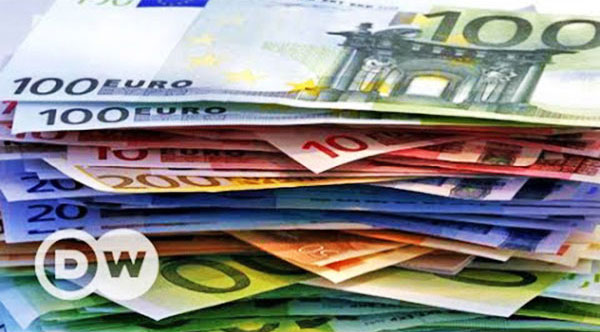|

by
DW Documentary
July 05, 2017
from
YouTube Website

Exploding real estate prices, zero interest rate and a rising stock
market -
the rich are getting richer. What danger lies in wait for
average citizens?
For years, the world's
central banks have been pursuing a policy of cheap money.
The first
and foremost is
the ECB (European Central Bank), which buys bad
stocks and bonds to save banks, tries to fuel economic growth and
props up states that are in debt.
But what relieves state
budgets to the tune of hundreds of billions annoys savers:
interest rates are
close to zero.
The fiscal policies of
the central banks are causing an uncontrolled global deluge of
money.
Experts are warning of new bubbles. In real estate, for
example, it's not just in German cities that prices are shooting up.
In London, a one-bed apartment can easily cost more than a million
Euro.
More and more money is moving away from the real economy and
into the speculative field. Highly complex financial
bets are taking place in the global casino - gambling without checks
and balances.
The winners are set from
the start:
in Germany and around the world, the rich just get
richer...
Professor
Max Otte
says:
"This flood of money
has caused a dangerous redistribution. Those who have, get
more."
But with low interest
rates, any money in savings accounts just melts away. Those with
debts can be happy.
But big companies that
want to swallow up others are also happy:
they can borrow cheap
money for their acquisitions.
Coupled with the
liberalization of the financial markets, money deals have become
detached from the real economy.
But it's not just the
banks that need a constant source of new, cheap money today. So do
states. They need it to keep a grip on their mountains of debt.
It's a kind of snowball
system...
The film 'The Money
Deluge' casts a new and surprising light on our money in these times
of zero interest rates.

The
Money Deluge - Storyline
Interest rates in Europe have consistently fallen for much
of the past decade.
Today,
the rate is virtually nonexistent. As a result, many
citizens have decided to keep their cash, gold and other
valuables in safety deposit boxes.
Yet,
there appears to be a seemingly endless stream of cheap
money flooding into the financial system, which only
succeeds in propping up the wealthy while responsible
investors are left out in the cold.
"The
Money Deluge" examines this complex financial reality that
could lead to another volcanic global crisis.
This deluge of cheap money acts as a massive engine that
redistributes wealth from the bottom up.
Banks
and states are propped up on the backs of the middle class
who see little return on their investments and must contend
with rapidly increasing costs.
Checks
and balances are tossed aside, and debts are permitted to
mount among
the Elite while their
liability is minimized. The meek regulations that remain in
place are easy to circumvent.
Brexit could further
exacerbate this dynamic.
The real estate market is booming as the super rich continue
to buy up properties as a form of investment.
In
London, over 40,000 homes have been purchased by large shell
corporations, and many of them remain uninhabited.
Meanwhile, ordinary citizens have been priced out of the
housing market, and struggle to keep pace with escalating
rents. Much of the working class have been forced to live
far outside the city.
This economic model is almost entirely speculative, and it's
driving a
deeper wedge between the rich and the
poor.
The filmmakers travel across Europe and speak with a series
of financial experts who predict an oncoming meltdown in the
global economy, young entrepreneurs who struggle to attain
loans for their innovative start ups, and seasoned investors
who have been forced to reconsider what they do with their
retirement funds.
The lessons from
the 2008 global financial crisis
have gone unheeded. When this current bubble bursts, it will
likely prove catastrophic.
"The
Money Deluge" is an effective warning shot that speaks to
the doom that could be lying in wait for us all.
Source
Versión
en Español
El Gran Flujo de Dinero
- Como los Ricos se
vuelven Mas Ricos -
Desde hace años,
los bancos centrales del mundo
practican una política de
dinero barato,
especialmente el BCE, el Banco
Central Europeo.
Compra valores debilitados para
rescatar bancos,
quiere reactivar el crecimiento
económico,
apoya a países endeudados.
Esto descarga en cientos de
miles de millones
los presupuestos estatales,
pero los tipos de interés bajos
perjudican a los ahorristas.
|



